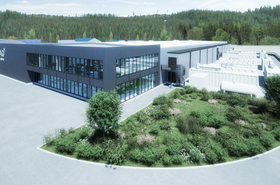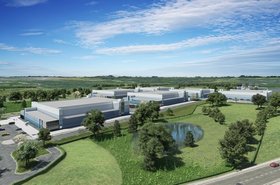Durham University has officially launched its Cosmology Machine 8 (COSMA 8) supercomputer.
Launched at an event this month, COSMA 8 is made up of 67,584 processors, has half a petabyte of memory and is the result of £10 million ($12.17m) in funding.
The supercomputer is intended to be used to develop and test theories about the origin of the universe and other areas of research including dark matter, dark energy, the formation of galaxies, the evolution of stars, and the origin of planets.
The AMD-based high-performance computing (HPC) cluster is housed at the University of Durham on behalf of Distributed Research utilizing Advanced Computing (DiRAC).
Professor Carlos Frenk, Ogden Professor of Fundamental Physics, in the Institute for Computational Cosmology, at Durham University, said: “Durham and our research partners around the world are at the forefront of research into some of the most fascinating and fundamental questions in modern science including the search for the identity of dark matter, the nature of dark energy and the origin of galaxies.”
“COSMA 8 will allow us to go even further in addressing these fascinating questions that lie at the very heart of understanding our place in the Universe.”
DiRAC provides HPC services to science students and its resources are distributed between four universities: Cambridge, Leicester, Durham, and Edinburgh.
COSMA has been in existence since 2001, with this latest update being its eighth generation. Funding for COSMA 8 was provided by the UK Research and Innovation Fund from the UK's Science and Technology Facilities Council.
According to the Durham University website, the COSMA 8 was expected to be in service by October 2021. The first prototype phase of COSMA8 became operational in October 2020 and the full phase-1 COSMA8 system became operational in September 2021. The COSMA8 phase-2 extension was set to be completed over the summer.
The specifications shared for COSMA 8 in 2020 suggest that the supercomputer has a peak performance of 1.9 petaflops, provided by 360 compute nodes with 1TB of RAM and dual 64-core AMD Epyc 7H12 processors, and an additional 168 nodes with dual Milan 7763 processors.
It is unclear what hardware has been added as part of the 2023 expansion.
COSMA6 was retired in April 2023.
Chi Onwurah, Labour Shadow Minister for Science, Research, and Innovation, said at the official launch this week: “It was a privilege to launch the new Cosmology Machine supercomputer here in Durham. Adding to our scientific strength in the North East, COSMA 8 will help scientists in Britain and around the world explore profound questions about the Universe.”







